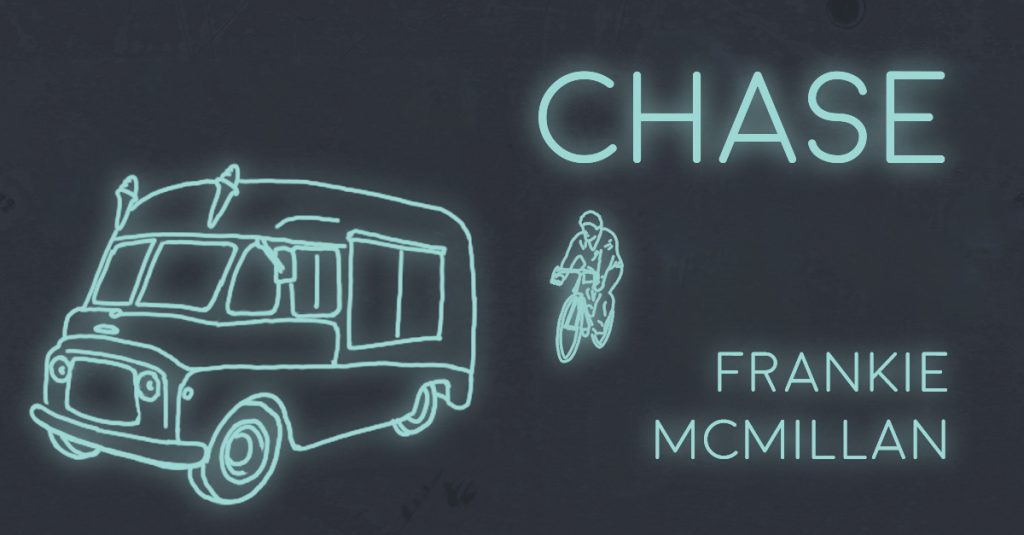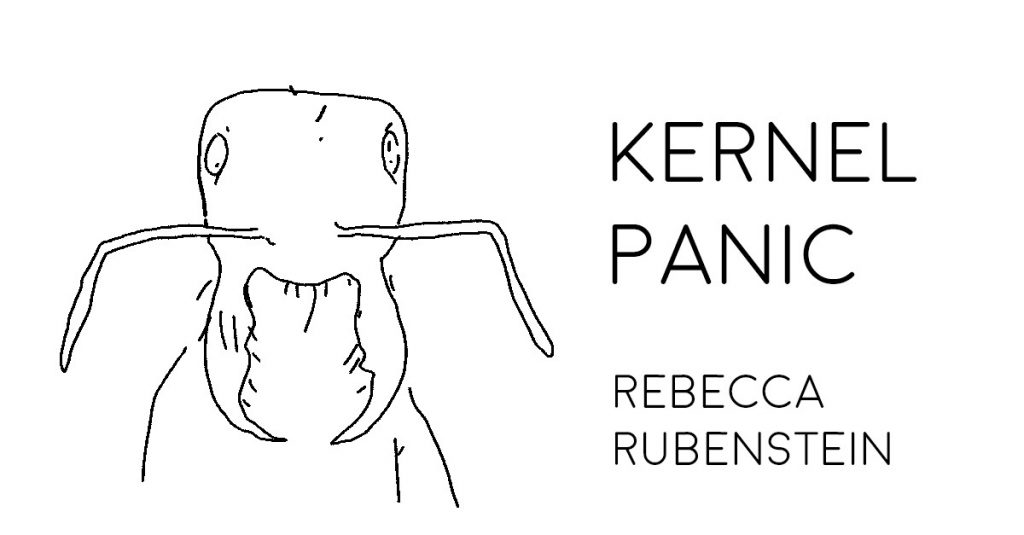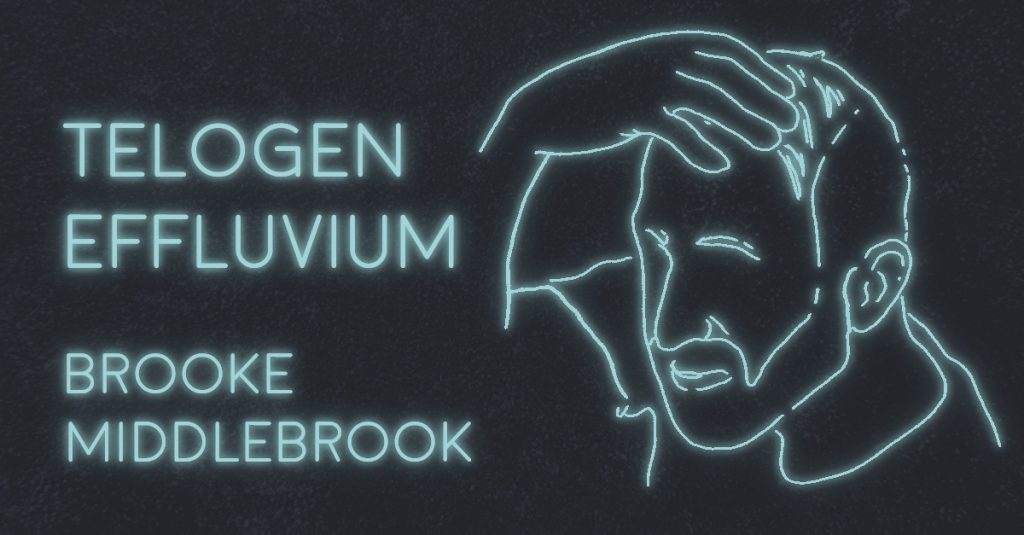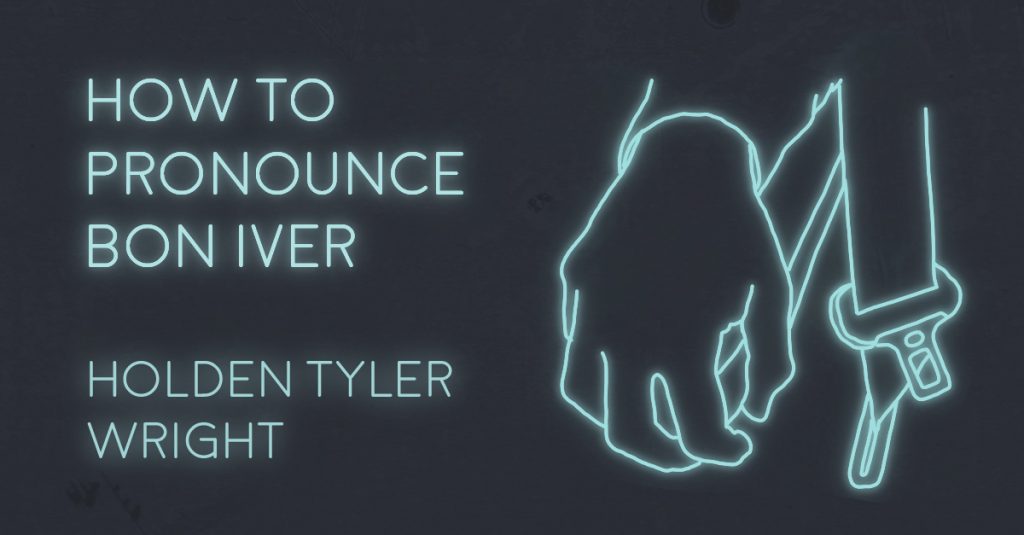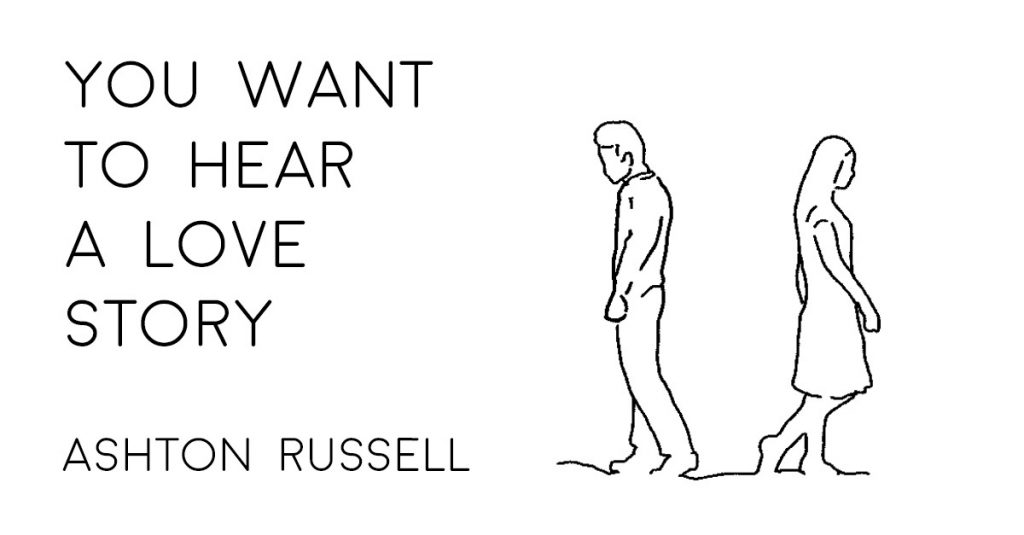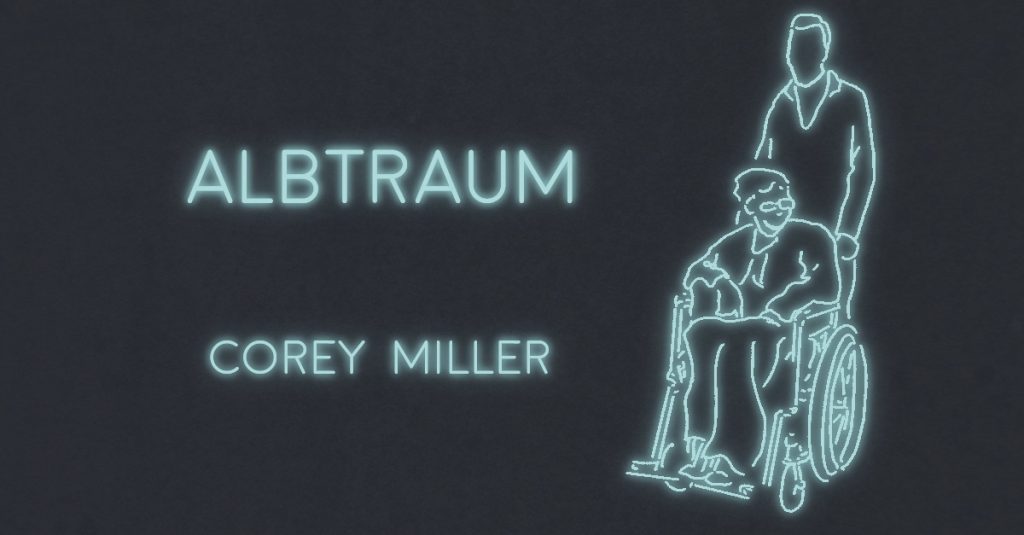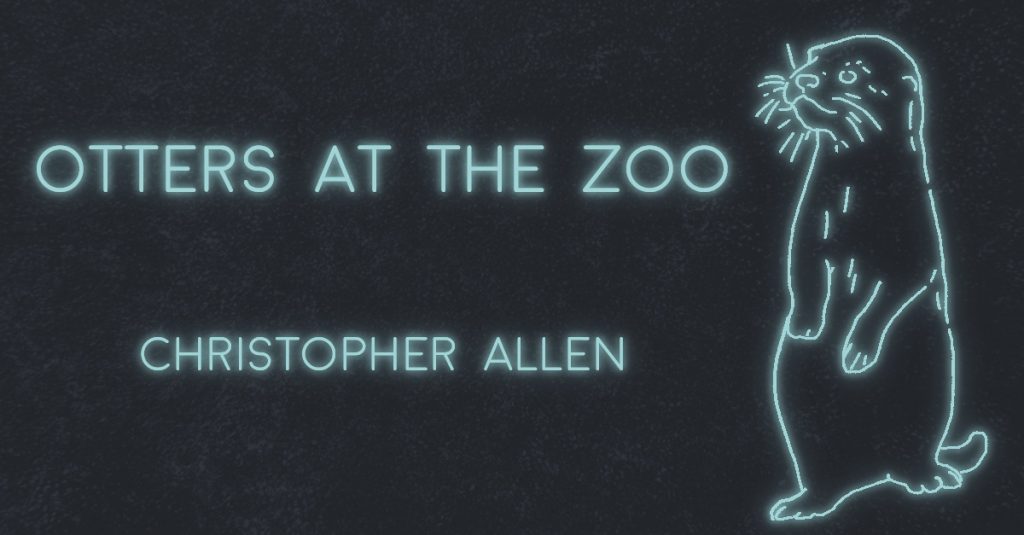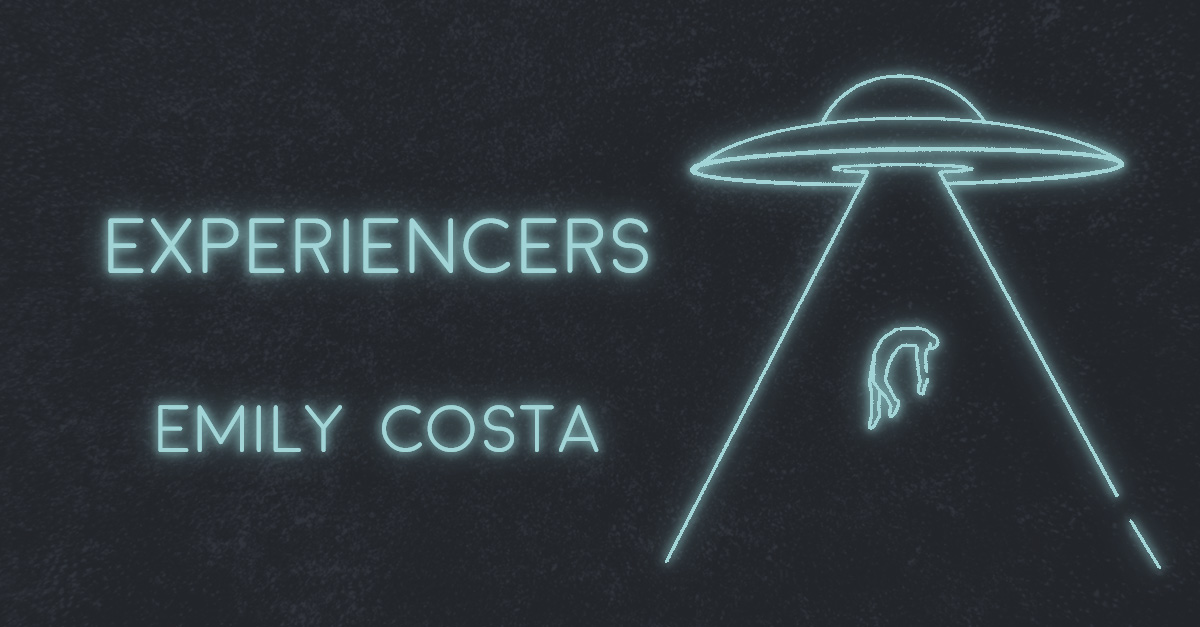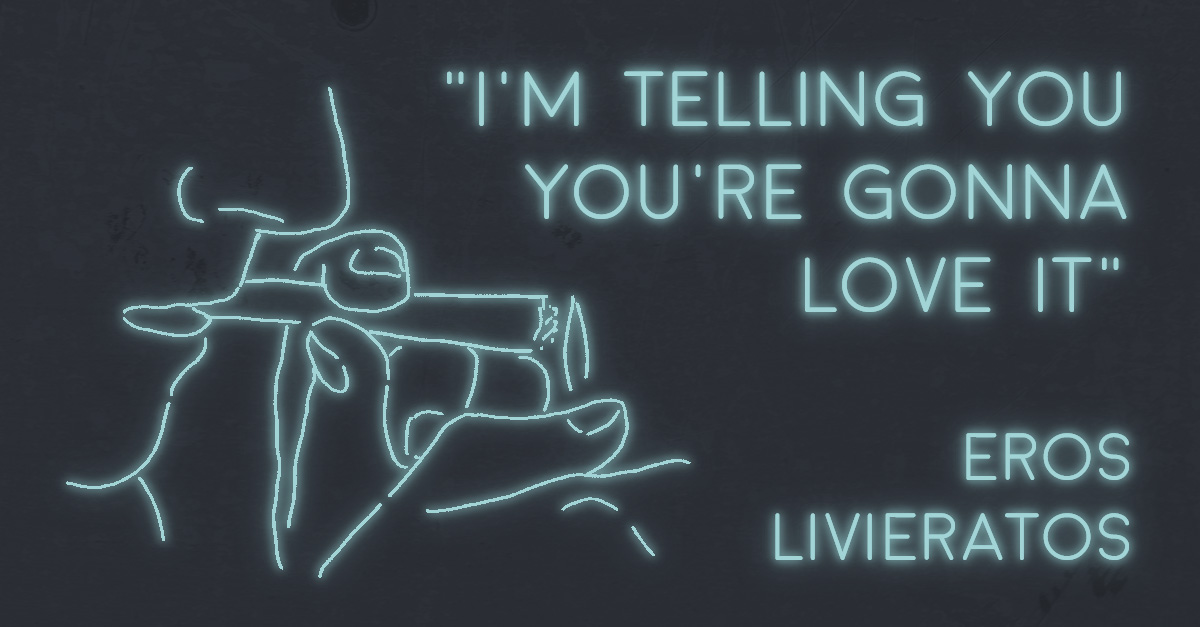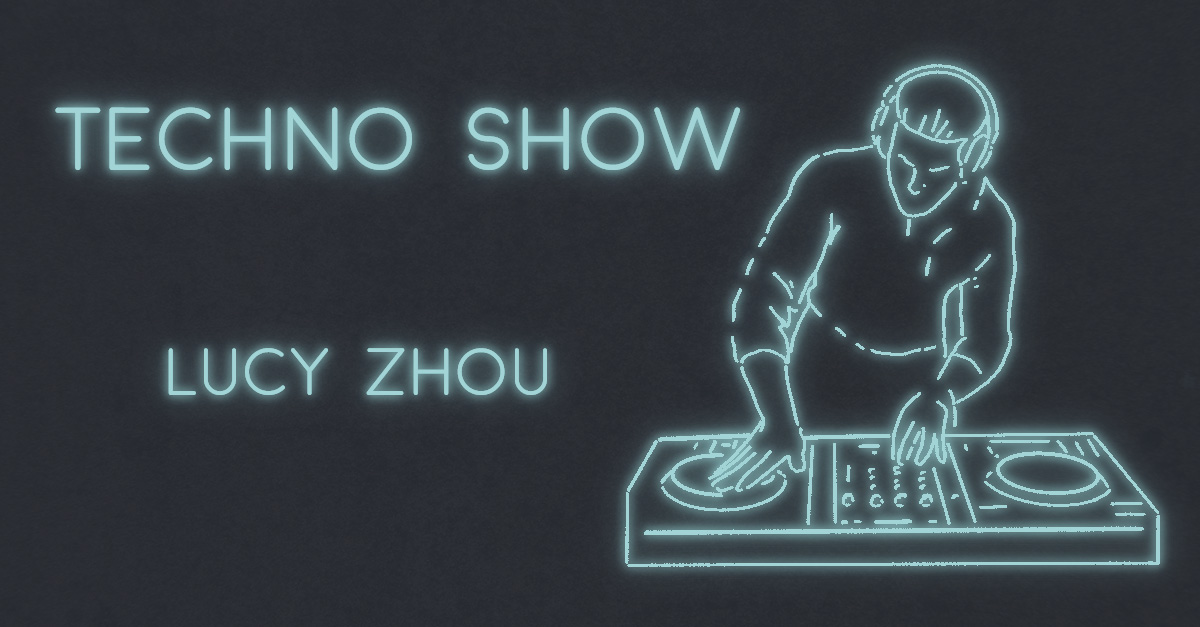When his mind went blank, Benno walked to the water store. Smack-dab in the middle of a strip mall a block downhill from his apartment, it was the kind of place that didn’t pull punches. It sold water, and vessels with which to hold water, and that was it.
Water cooler jugs lined the walls on one side, and empty aquariums formed a barricade on the other, and the floors teemed with pallets of imported bottled water—glacier runoff from Iceland and Switzerland and all the lands. Metallic shelving flanked each side of the store, and on those shelves sat sturdy, eco-friendly water bottles, rows and rows of them in bright, cloying colors. Shocking pink and neon-yellow and toxic-sludge-green and orange the shade of emergency road cones. No blue, though.
“We used to sell blue,” Azazel, one of the two brothers who owned the store, told Benno once. “But they drew a bad element, so we stopped.”
The store always seemed empty whenever Benno dropped by or passed it on his way to do laundry next door, so he asked Azazel would he please be more specific? As far as Benno could tell, there was a good chance he was the brothers’ only customer. Azazel dropped his voice to a whisper and put his hand to his chest, as though he’d been wearing a wire and wanted to convey he was sorry, he wasn’t really a snitch, this information would be for Benno’s ears only.
“Techie scum,” Azazel said. “They’re fucking everywhere these days, ruining the neighborhood.”
A handful of odd jobs filled Benno’s time, and one day, while he was trying to create a series of crosswords for the local alt-weekly, his mind shut down completely. The puzzle was movie-themed, but he couldn’t remember which Bergman was the director and which was the actress, and before he knew it, a thick fog had settled in without intent to leave. This was happening with some frequency, and Benno thought maybe, if he had good health insurance, something other than what the state provided for low- to no-income people like him, this would be the kind of thing to get checked out by a specialist. But just the prospect was laughable; these were penny-pinching times and he could barely even afford a 10-for-$20 frozen pizza deal at Safeway after all his bills were paid up. Instead of just googling what he needed to know, Benno exited his crossword-making app, turned off his computer, and headed downhill.
Edgar, the other brother who owned the water store, was sitting behind the cash register when Benno arrived. The little bell on the rim of the door jangled, but Edgar didn’t look up from the detective novel he was reading. Even when Benno cleared his throat, the bushy-browed man kept his eyes on the paperback, sucking a slushy through a long red straw.
“Hey, Edge.” This was the nickname Azazel liked to use, and Benno thought it might snap his brother out of it. “Earth to Edge?”
Edgar stuck his index finger in the air, a swift and sharp gesture that gave Benno pause. “If you’re going to interrupt me while I’m mid-paragraph,” the man sneered, “you can take your ass elsewhere.”
It was almost 2 p.m., the golden hour when the brothers usually traded shifts. Azazel was better to shoot the shit with. He kept current on the news and knew more about what was going on in the neighborhood. During their chats, he usually filled Benno in on who’d been cited for public urination the night before, or, more seriously, whose shop was being offered a buyout by the local real estate sharks dead-set on gentrifying their corner of the city. There were already condos going up on either end of the main thoroughfare, and there was chatter about a pilates studio taking over the space where a bookstore had sat for nearly thirty years, before it shuttered suddenly due to an egregious rent hike.
Edgar, on the other hand, lived in an alternate universe: men wore trench coats, called women dames and broads, smoked cigarettes like they provided nutrients. In Edgar’s world, the organized criminals still walked around with feathered fedoras and tommy guns, not low-foam lattes and realtor business cards.
“Have you ever considered selling something other than water? Maybe get some tropical fish for these?” Benno tapped on the glass of one of the aquariums like there were already some beauties of the sea swimming inside. He had never been to Hawaii or Fiji or the Bahamas, but he’d seen photos of snorkelers in pristine pools, their faces surrounded by candy-striped fins and iridescent fins and gauzy green fins you might mistake for seaweed.
Edgar sighed. “Don’t you have somewhere better to be? Someone else you can bug today?”
He still didn’t take his eyes off his book, and to Benno it looked like he was talking to it, like Edgar was scolding one of its characters instead of him. One of the lowlifes. One of the floozies.
“I could help you get some,” Benno offered. “I know a guy who knows a guy.”
Edgar snorted. “Benno, how long have you been coming in here? Two years? Three? You can’t pull one on me. The only fish you have access to are the ones that live in your freezer.”
It was true: Benno liked fish sticks a lot. They were affordable and filling. But in this moment, he regretted mentioning it to the brothers only to have the information used against him. It was the type of sabotage that reminded him of childhood. In the third grade, Benno made a terrible miscalculation about the secrecy of eight-year-olds. During a sleepover with his best friend—a wisp of a boy who called himself Jo-Jo, even though his name was Aleksandr—Benno revealed something deep and dark that had been plaguing him for months. Any night now, Benno warned Jo-Jo, ants were going to crawl into his eye sockets while he slept and create a worker colony in his brain. Benno couldn’t shake the thought. It was part of why he’d opted to stay home from sleep-away camp that summer, why he refused to visit his cousins in the Upper Peninsula. All it took was one fatal brush with the wrong log. The closer Benno was to nature, he reasoned, the more likely the ants would come. Jo-Jo listened with that glistening, rapturous stare of his, nodded when Benno said he was terrified. Then Jo-Jo hugged his friend and declared he would protect him, and they even spat into their palms and shook on it, Jo-Jo swearing on his parents’ antique rattan furniture that he would never, ever, ever tell.
But the next week at school, when Benno accidentally ate his whole chocolate chip cookie at lunch, even though he’d promised to share it with his best friend, Jo-Jo went ballistic. On the playground at recess, he pushed Benno to the ground. He grabbed a fistful of Benno’s hair and pulled hard. He slapped Benno clean across the mouth and called him a liar. “You don’t know what a promise is!” Jo-Jo screamed. He slapped Benno again, and again, each hit harder, forcing Benno’s lips into the ridges of his teeth and drawing blood.
And then Jo-Jo told everyone within earshot what Benno had told him. It didn’t matter that there were only a few kids around—by the end of the day, their entire class would know, maybe even the whole third grade. That’s how things worked.
“You’re a big weirdo baby!” Jo-Jo cried. “I hope the ants crawl into your brain! I hope they eat you from the inside out!” Then Jo-Jo began chanting Antsy Nancy.
At first, the other kids didn’t know what to do. They looked at one another inquisitively. Did Benno deserve this? What, truly, was his crime? But then another kid joined the chant. And another. Soon, it was all Benno could hear, a droning choral arrangement not unlike the ones that filled his ears on Sundays at church. Antsy Nancy. Antsy Nancy. The name stuck hard, like gum pressed against a stucco wall. Benno was Antsy Nancy for years, until junior high, when his parents got divorced and his mom moved them away from everything: that one-trick town, those unforgiving kids, that shitty excuse for a best friend.
That was probably when Benno should have figured he wasn’t cut out for the world, that he was doomed to be a weirdo forever. But he kept soldiering on, kept telling himself life was bound to get better once he became a grownup.
And then he became a grownup and life did not get better, no sir. Benno just shifted into a more permanent state of hopelessness. Far as he could tell, the only things he had going for him were his rent-controlled studio and a loosely-defined friendship with two guys who ran a store that was, in all likelihood, a front for drugs or money laundering or both.
The overhead light in the water store flickered for a moment, and Benno wondered if the bulb was about to pop.
“Where’s Azazel?” he said.
Edgar shifted in his chair. “He’s coming in later today. His laptop keeps crashing, so he’s getting it fixed.”
“What’s wrong with it?”
Edgar sighed, and for the first time since Benno had entered the store, the man looked up from his novel. “I don’t know,” he said slowly, enunciating every word. “Something called ‘canal panic,’ I think? You’ll have to ask Az when he shows. I don’t know shit about computers.”
Benno left. Edgar knew he wouldn’t buy anything, and it was only a matter of minutes before the man would really lose his mind. Benno had seen it happen. It wasn’t pretty. Sometimes the brothers got into it, and the screaming and insults would peak until Azazel threatened to enroll his brother in anger management classes and Edgar threatened to kick his brother’s ass until there was no more ass left to kick. Only once did a knife appear, and Benno remembered this moment often: the way Azazel put up his hands, saying, “Be cool, be cool,” and Edgar shouting, “Give me a fucking reason to be cool,” and the long, tense few minutes when it seemed like anything might happen, even murder. Benno had left that day thinking maybe he shouldn’t come back anymore, maybe the store would be a crime scene next time, where instead of water there’d be nothing but pools of blood. But he couldn’t stay away forever, not until the store became another real estate casualty and was gone for good.
At home, Benno’s fridge didn’t have much in it that wasn’t expired, so he opened the cabinet above the stove and took out a tin of baked beans. During those awful Antsy Nancy years, he’d developed a habit of coming home after school and eating Chef Boyardee straight from the can. He didn’t mind that the tomato sauce wasn’t heated through, or that the ground meat bits in the center of the ravioli were cold. He just wanted something that tasted familiar. He figured he might not have any friends, or any social consistency, but at least he could depend on the predictable comfort of processed pasta. Now, as an adult, Benno did the same with baked beans. Plunging his fork in, he stirred to unstick and loosen the beans, and the sweetness of the brown sugar in the sauce and the salty, nubbed texture of the bacon pleased him.
On the couch, Benno opened his laptop. Between mouthfuls of beans, he searched for “canal panic” and scrolled, but all he got was a plethora of articles about swans attacking tourists and buildings in Venice threatening to collapse. Then he noticed the prompt: did he mean to type “kernel panic”?
Kernel panic, he learned, was an unrecoverable system error. The heart of a computer’s operating system is called a “kernel” and when something goes wrong—say, the code of the operating system is subtly corrupted, or on a larger scale, the memory the operating system uses can’t be read from or written to—the computer shuts down. It feels random, Benno read, but the computer effectively jumps ship to protect itself from more damage. Almost as if to say: “I can’t trust myself to go on without further harming my most integral parts.”
Was the same thing happening to Benno? Was this why his memory kept shifting in and out? His fear of the ant colony had never subsided, not really—had they finally found their way in? Had they set up shop inside his brain and were they now busy chipping away at it? Ants can carry massive amounts of weight—were they rearranging his gray matter, carting pieces to and fro, reorganizing his pathways? Maybe, Benno thought, his memory issues were his brain’s way of fighting against the ants. It knew something was wrong, and by shutting off from time to time, the most critical part of him was defending itself from certain doom.
The fizziness in Benno’s mind had swelled, and his workday, he knew, was over. So he finished his beans, popped a CBD gummy, and let sleep overwhelm him.
Several hours passed, and when Benno finally woke, the sky had grown dark. His phone assured him it wasn’t as late as he thought, and he wondered if he could catch Azazel before the man closed up shop for the evening. It would be nice to see a friendly face. And maybe Azazel would know what to do about his worsening memory problem. Benno threw on a hoodie and his sneakers and walked back down the hill.
When he arrived at the water store, Azazel and Edgar were both behind the register. The two were eating a sub they’d split down the middle. Breadcrumbs dotted the counter, and Edgar had mayo splotched on his stubbled chin. It looked like something else, like he’d been doing a whole lot of something else, and for a hot minute Benno thought maybe he should keep walking, do a lap around the block, grab a $1 hot dog from 7-11, and head home. But Azazel saw him and waved, and it felt like a waste to not even say hi.
“Twice in one day. To what do we owe the pleasure?” Edgar smirked, and Benno almost turned right back around, but Azazel punched his brother in the shoulder and said, “Edge, don’t be an asshole. B, you know you can come in here whenever you want.”
Benno sucked his teeth, stifling a grin. “How’s your laptop?” he asked.
Azazel shook his head. “They’re keeping it overnight. Like it’s a sick animal.”
“They might have to put it down,” Edgar interjected, then pitched his voice up, “Did you have time to say goodbye, Az? Give it a good pet?” He nudged his brother, cackling, but Azazel didn’t take the bait. Edgar’s sense of humor was almost as out-of-touch as all those old books he loved to read.
“That’s a shame,” Benno said. “I hope they can fix it.”
“You and me both. Having to buy a new one would murder my finances.”
Azazel had the most remarkable way of phrasing his woes, and Benno was about to say as much when Edgar rammed his fist against the counter.
“What the hell, man?” Azazel looked at his brother like Edgar had just tried to pop him in the jaw. “What is wrong with you today?”
Edgar shrugged. “There was an ant.”
“You don’t need to crush it like it’s a goddamn cockroach. Do you want to break our fucking countertop again?”
A few months before, during one of their fights, Edgar had cracked the glass. In the midst of an outburst, he’d slammed his fist down with such force, the surface had splintered, webbing as though a bullet, not bone, had found its way through. The faintest of shards had embedded in his knuckles, causing the skin to glisten for days, until Azazel finally removed them with a pair of tweezers. Sometimes, Benno envisioned Edgar’s home and how it must have walls full of holes the size and shape of his fists. Benno couldn’t imagine living with that kind of anger—what it must do to the mind, eating the raw parts whole.
Azazel wiped up the bug’s body, smearing it with a napkin. Benno noticed a few more on the counter, idling near the register, and hoped Edgar wouldn’t see. But the man’s eyes weren’t downcast. Benno realized they were fixed on him.
“What is that?” Edgar’s eyes had suddenly gone wide, the same way Benno’s had as a kid, when Jo-Jo had wailed on him on the playground and all their classmates had waited around nervously to see what would happen next. The terror in those eyes. The uncertainty.
“Sorry?” Benno looked behind him, and all around, but all he saw were the same pallets, the same jugs, the same empty aquariums that were always there.
“No, no.” Edgar shook his head and pointed. “That. What the hell just came out of your mouth?”
Benno pawed at his lips. Had he felt something before? A slight tingling, perhaps? But then his lips were often chapped, often buzzing with discomfort. At first Benno’s fingers looked like they always did: slightly pruned, the cuticles ragged from years of nail-biting. But then he saw what Edgar saw: small black ants crawling around, crossing his nail beds, punctuating his fingertips like errant commas.
Azazel had his hand on his chest, like that time he told Benno about the blue bottles. “What in the world? B, are you okay?”
Benno wanted to say yes, of course, there was absolutely nothing to worry about. He liked to steal sugar packets from the coffee shop down the street—maybe one had ripped open in his hoodie pocket and attracted a few of the critters. But when he looked down, Benno saw a swarm of ants marching down the front of his hoodie. There were maybe fifty of them, and they seemed to come out of nowhere. They certainly weren’t crawling out of his pockets. The lot of them crossed at a diagonal, an insect sash clean across his chest.
After that, it didn’t take long for an entire army to descend. It happened in what felt like seconds. At first Benno thought they were only emerging from his mouth, but then he felt a tickle in his nostrils and his ear canals, and he knew the ants were finding their way out of those holes, too. He had no idea what to do. He couldn’t keep them in. They just kept coming.
And then he began to vomit.
Wads of ants fell from his mouth. If Benno had seen it in a movie, he would not have been able to suspend his disbelief. They were rounded and gnarled—like hairballs but alive.
It was around the time that Benno coughed up the fifth or sixth antball that Azazel called 911. There were ants everywhere. On the floor. On the pallets. Hugging the rims of the fancy glacier runoff water bottles. Benno could tell Edgar was screaming at him, because his mouth was moving and his face had morphed into the kind of red that skin takes on when you are either irate or asphyxiating. But Benno could barely hear him; the ants had blocked up his ears completely.
Benno swung his arms around, as though it would help. He swung his hips and his ass and the brute stretch of his legs. As though making his body seismic would create a quake so severe, the rattle would rupture the ants’ hearts and they would just die on the spot. But they didn’t die. They kept coming. They kept coming and coming and clinging to every single part of him, and in his mounting panic, Benno wished his body would just shut itself down. Maybe that would end the nightmare: if his body jumped ship. But that’s the problem with the body—it does what it wants, when it wants. It’s animal like that. Benno understood full well you couldn’t will yourself into a coma, just like you couldn’t will people to be your friends, just like you couldn’t will friends to keep your secrets, just like you couldn’t will secrets back into the dark so your life would turn out differently. Would turn out better. Some things, Benno understood with clarity now, are beyond one’s control.
And so the ants kept coming. They didn’t stop. They wouldn’t stop, Benno knew, they were as permanent as the parts of him he loved and the parts of him he despised. They would keep coming until, somehow, Benno burst, and all that remained would be piles and piles of ants, surrounded by water that could very well drown them.
